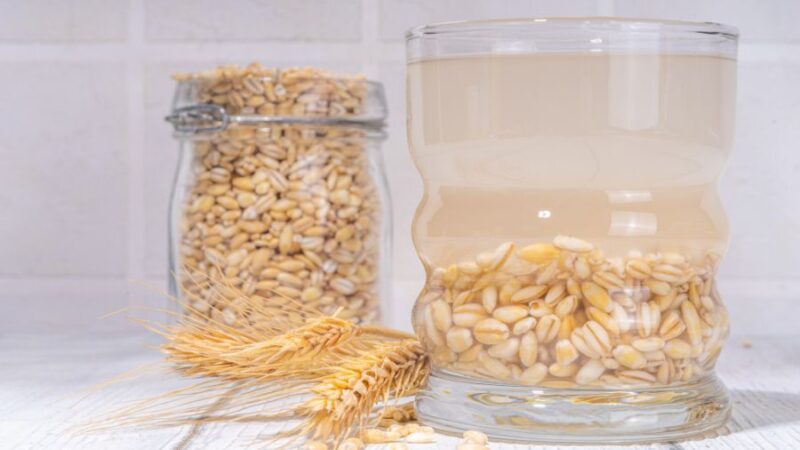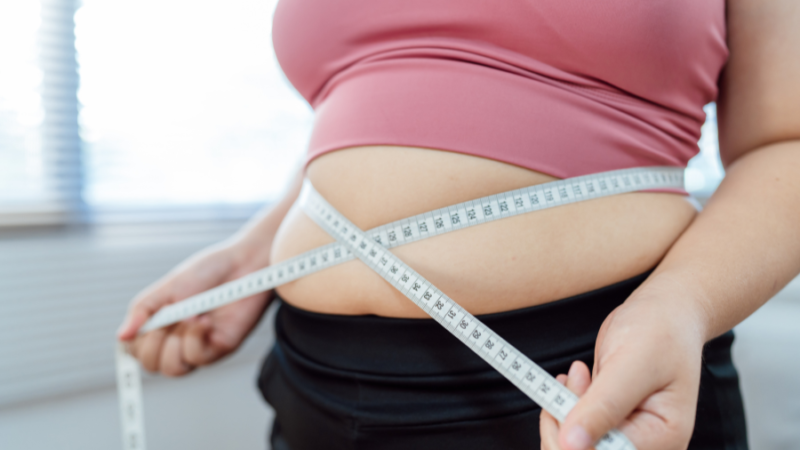How to Lose Weight During Menopause?

Menopause is a natural phase in a woman’s life, typically occurring between the ages of 45 and 55, when menstrual cycles come to an end. While it marks the end of fertility, it also brings a wave of hormonal changes that can affect almost every aspect of health-including body weight. Many women find that losing weight during menopause feels more challenging than ever before.
But the good news is that while menopause can make weight management more difficult, it’s not impossible. With the right strategies, lifestyle changes, and mindset, you can maintain a healthy weight and feel your best. Let’s dive into why weight gain is common during menopause and practical, science-backed ways to lose weight during this stage of life.
Which High Carb Foods to Avoid to Lose Weight
Why Weight Gain Happens During Menopause
Before we explore weight loss strategies, it’s important to understand why menopause makes the scale harder to manage.
1. Hormonal Changes
Estrogen levels drop significantly during menopause. Estrogen influences how fat is distributed in the body, and lower levels often cause fat to shift from the hips and thighs to the abdominal area, creating more belly fat.
2. Slower Metabolism
As women age, muscle mass naturally declines, which lowers the metabolic rate. A slower metabolism means fewer calories are burned at rest.
3. Lifestyle Factors
Many women in midlife experience changes in sleep quality, increased stress, and less physical activity-all of which can contribute to weight gain.
4. Insulin Resistance
Hormonal changes can affect how your body processes sugar, sometimes leading to insulin resistance. This makes it easier to store fat and harder to lose it.
5. Aging-Related Changes
Beyond hormones, the aging process itself slows calorie burning and affects energy levels, making weight management more complex.
How Protein Powders Can Help You Lose Weight and Build Muscle
How to Lose Weight During Menopause
Losing weight during menopause isn’t about extreme diets or punishing workouts-it’s about adopting sustainable habits that address both the physical and hormonal shifts happening in your body.
Here are the most effective strategies:
1. Prioritize a Balanced Diet
Focus on Whole Foods: Choose unprocessed, nutrient-rich foods like vegetables, fruits, whole grains, lean proteins, and healthy fats. These foods keep you full longer and stabilize blood sugar.
Increase Protein Intake: Protein helps preserve lean muscle mass, which is essential for maintaining metabolism. Include sources like fish, poultry, beans, lentils, tofu, and Greek yogurt.
Control Carbohydrates: Menopause can make your body more sensitive to refined carbs and sugars. Swap white bread, pasta, and pastries for whole grains like quinoa, oats, and brown rice.
Healthy Fats Matter: Omega-3s from sources like salmon, chia seeds, and walnuts help fight inflammation and support heart health.
Watch Portion Sizes: Even healthy foods can contribute to weight gain if consumed in large quantities. Eating mindfully helps prevent overeating.
2. Stay Physically Active
Exercise is one of the most powerful tools for managing weight during menopause.
Strength Training: Muscle mass naturally declines with age, but strength training (using weights, resistance bands, or bodyweight exercises) builds muscle and boosts metabolism.
Cardiovascular Exercise: Activities like walking, swimming, cycling, or dancing help burn calories, improve heart health, and reduce belly fat. Aim for at least 150 minutes of moderate cardio each week.
Flexibility and Balance: Yoga, Pilates, or stretching help reduce stiffness, improve posture, and manage stress.
Daily Movement: Small actions like taking the stairs, gardening, or short walks add up and keep your body active.
3. Manage Stress
Stress increases cortisol, a hormone that can promote fat storage around the midsection. During menopause, many women notice they carry more weight in their belly-and stress often makes it worse.
- Practice mindfulness or meditation.
- Schedule regular downtime for hobbies or relaxation.
- Deep breathing exercises and yoga can help lower cortisol levels.
4. Improve Sleep Quality
Sleep disturbances are common during menopause due to hot flashes, night sweats, or hormonal fluctuations. Lack of sleep disrupts hunger hormones (ghrelin and leptin), making it harder to control appetite.
Tips for Better Sleep:
- Stick to a consistent sleep schedule.
- Avoid caffeine or alcohol close to bedtime.
- Keep your bedroom cool and dark.
- Try relaxation routines before bed, like light stretching or reading.
5. Stay Hydrated
Dehydration can sometimes be mistaken for hunger, leading to overeating. Drinking enough water throughout the day also supports metabolism and digestion. Aim for at least 8 glasses daily, and more if you’re active.
6. Consider Intermittent Fasting
Some women find intermittent fasting (such as the 16:8 method) effective during menopause. It focuses on eating during a set window of time each day and fasting for the remaining hours. This approach may help improve insulin sensitivity and reduce calorie intake naturally.
However, intermittent fasting isn’t for everyone-listen to your body and consult a healthcare provider before starting.
7. Limit Alcohol and Sugary Drinks
Alcohol and sugary beverages add empty calories and can worsen belly fat. Try reducing intake or swapping them with sparkling water, herbal teas, or infused water with fruit.
8. Monitor Progress, Not Perfection
Weight loss during menopause may not be as fast as in your younger years, but consistency matters. Focus on overall health improvements such as increased energy, better sleep, and improved strength-not just the number on the scale.
When to Seek Professional Help
If you’ve tried lifestyle changes and still struggle with weight loss, consider consulting:
- A registered dietitian for personalized nutrition plans.
- A doctor to rule out thyroid issues, insulin resistance, or other health concerns.
- A trainer experienced with midlife women’s fitness needs.
Sometimes, medical interventions or hormone replacement therapy may be recommended for symptom management.
Final Thoughts
Losing weight during menopause may feel more challenging, but it is far from impossible. By combining a balanced diet, regular exercise, stress management, and good sleep, you can overcome the hormonal hurdles and achieve a healthier, stronger body.
Remember: weight loss during menopause isn’t just about appearance-it’s about maintaining energy, protecting bone health, reducing disease risk, and living a vibrant life in the years ahead.






